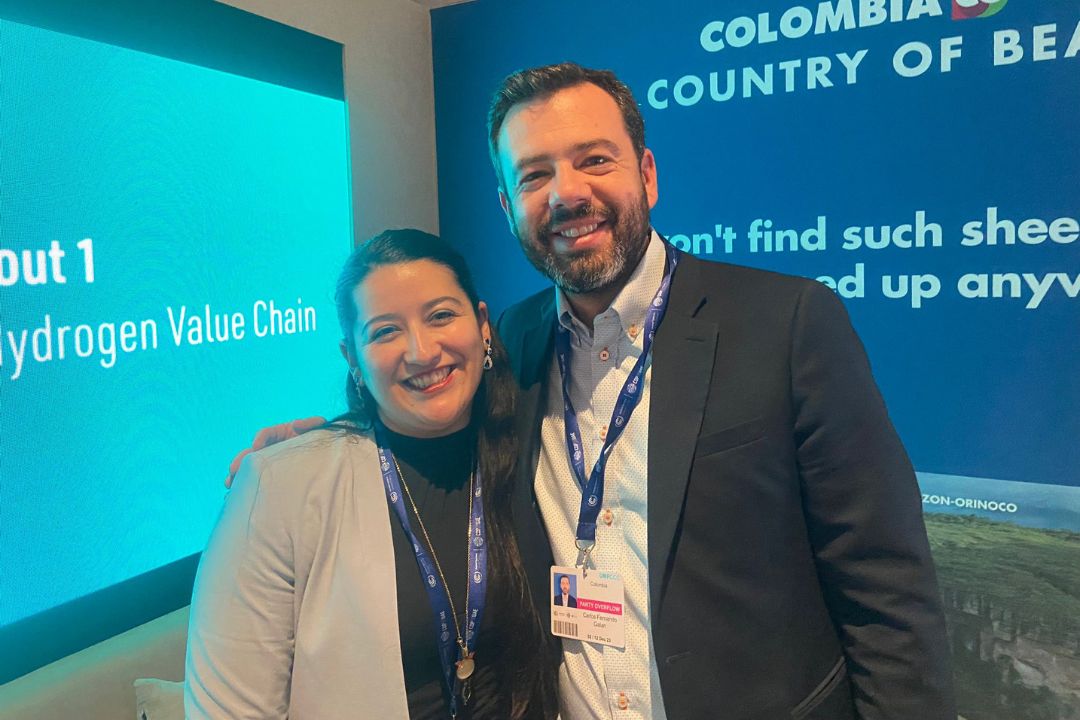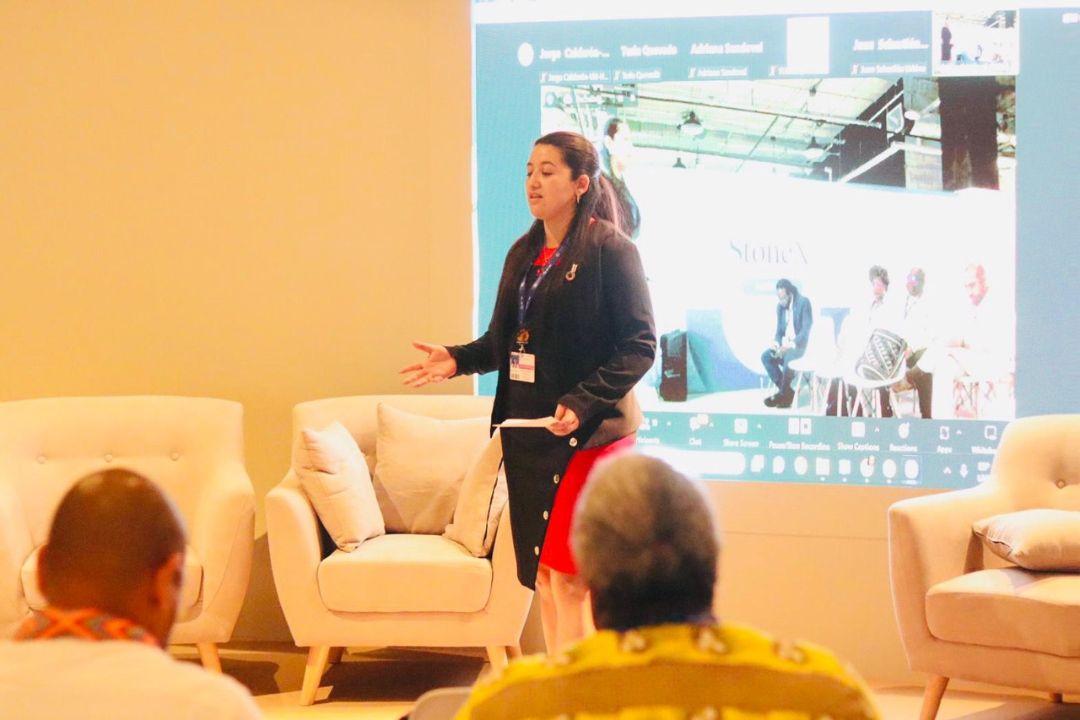In a quest to address climate challenges faced by vulnerable populations, Adriana Sandoval, a recent graduate of the GW Graduate School of Political Management’s M.P.S. in Political Management program, delves into the co-production of public policies for climate change adaptation in Colombia.
Through her active participation in international forums, Adriana emphasizes the crucial role of universities in generating research for improved policies to uplift the well-being of citizens in coastal regions. Most recently, she used her CPS Professional Development Student Award to give a presentation at the COP28 UN Climate Change Conference in Dubai in December 2023.
Empowering Vulnerable Voices: Navigating COP28 for Climate Justice and Coastal Resilience
By Adriana Sandoval, Master’s in Political Management Graduate, Class of 2023, GW Graduate School of Political Management
Living in a world increasingly affected by climate change, vulnerable populations, particularly those residing in coastal areas, face numerous challenges that require innovative solutions. Afrodescendant communities are struggling with rising sea levels, extreme weather events, and a host of socioeconomic disparities.
In my quest to address these challenges, I delved into the concept of co-production of public policies. This strategy involves citizens in the design and implementation of public policies for adaptation to climate change. In Colombia, we have conducted academic research through three essential policy tools: the National Adaptation Plan, the climate change law, and the Climate Change Policy. When analyzing them, we discovered that the Climate Change Policy showed the highest level of participation, especially from Afro-descendant communities.
Developing and implementing innovative climate adaptation programs is crucial to building resilient communities and promoting climate justice. These programs must address the needs and vulnerabilities of Afro-descendant populations to reduce social gaps and promote inclusive development.
The second phase of my research focused on the co-production of public policies for climate change adaptation, explicitly examining non-state actors' participation in coastal areas predominantly inhabited by Afro-descendant populations.
One of the critical aspects of co-production is translating policies into tangible public investments that strengthen coastal infrastructure and essential services. International collaboration, facilitated by organizations, fosters cooperation between national and territorial governments, non-state actors, and the private sector.
My journey into climate change advocacy began with a passion for environmental issues. As an advisor to the Fifth Commission of the Colombian Senate, I contributed to essential climate change and renewable energy laws. Subsequently, I completed a Master's Degree in Government and Public Policy at the Externado University of Colombia, where my research on the co-production of climate change adaptation policies in Colombia led me to co-author a book titled "Now or Never: Governance, Co-production, and Economy in the Face of Climate Change."
As a climate change consultant at Sustainable Development and Climate Change (SUDECC) and a Political Management master’s student at GW, I had the privilege of being a speaker at various international forums, including the First Summit of Cities of the Americas and the United Nations Permanent Forum on People of African Descent. The highlight of this trip was representing George Washington University in Dubai at The United Nations Conference on Climate Change (COP28), a global effort to advance the goals of the Paris Agreement and address climate change worldwide.
More than 85,000 people and 150 heads of state and government participated in the conference. This COP was particularly momentous because it marked a global effort to advance compliance with the Paris Agreement and international climate action that includes actions to mitigate and adapt to climate change.
At COP28, I participated in an Afro-descendants roundtable focused on “embracing sustainable, resilient, and equitable programs.” The event was organized by SUDECC and GLOBAL BLACK and encouraged participants to “share lessons learned in the implementation of climate change projects for Afro-descendants populations, deliver the outcome of [their] most recent research on mappings, projects and investments, as well as build partnerships to accelerate implementation and identify opportunities for cross-collaboration after COP28.”
Participating in COP28 as a representative of the Faculty of Professional Studies and my country, Colombia, in this international event was an honor that allowed me to showcase the University's commitment to addressing climate challenges. Additionally, during the conference, I had the opportunity to talk about climate change with leaders such as the elected mayor of Bogotá, Carlos Fernando Galán, the president of Colombia, Gustavo Petro, and the Minister of Environment and Sustainable Development of Colombia, Susana Muhamad. In-person speeches by the leaders of Brazil and Colombia, as well as the President of COP28 and the Secretary-General of the United Nations, reinforced the global commitment to climate action.
The transformative experience of participating in COP28 emphasized the shared responsibility that we have in caring for the environment. It highlighted the importance of collective efforts, bringing together youth, indigenous communities, civil society, government representatives, international organizations, and the private sector to achieve Sustainable Development Goal 13: Climate Action.
Representing the University is a call to action for the university community to collaborate to promote research initiatives that impact policy formulation through co-production. Let us collectively strive to achieve the Sustainable Development Goals, remembering that sustainability encompasses more than just the environment: it is about building a better future for all.
It is imperative to underscore universities' pivotal role as generators of academic research rooted in on-the-ground case studies. By conducting tangible research with measurable outcomes, universities contribute significantly to regional development and enhance citizens' overall quality of life. Universities, through the production of academic insights, can catalyze the formulation of improved public policies. Consequently, this collaborative effort aims to uplift the well-being of citizens residing in coastal areas. I express my heartfelt gratitude to SUDECC and George Washington University for allowing me to represent them at the preeminent global climate change summit.







